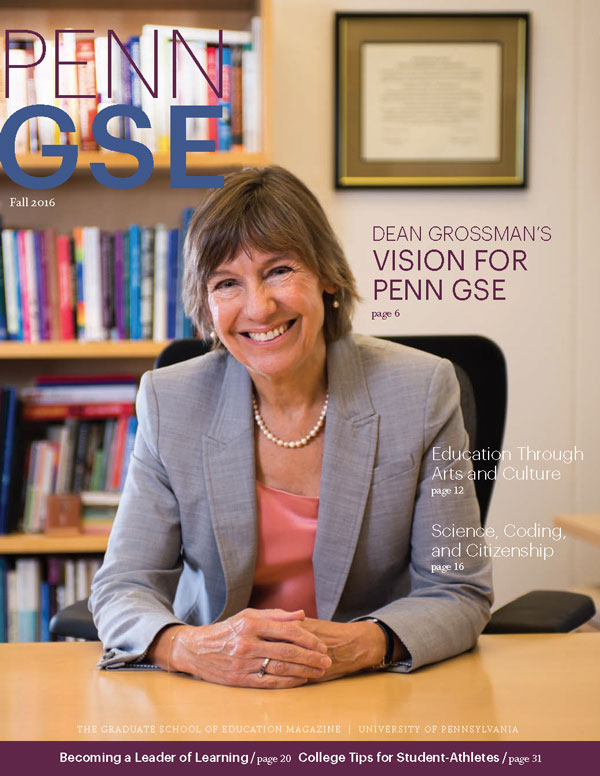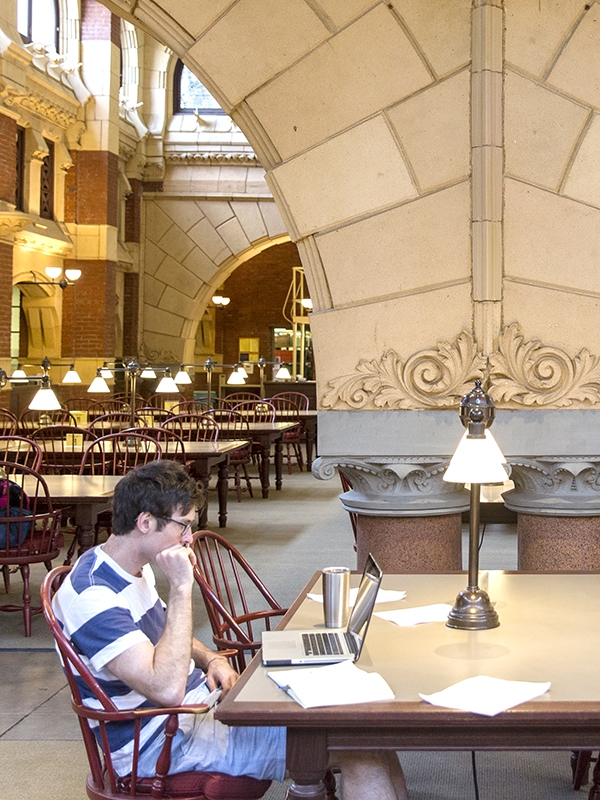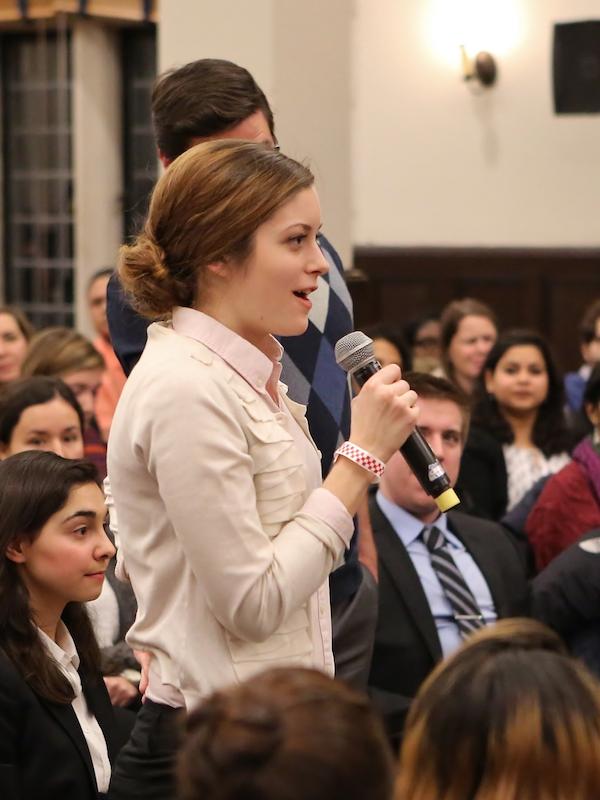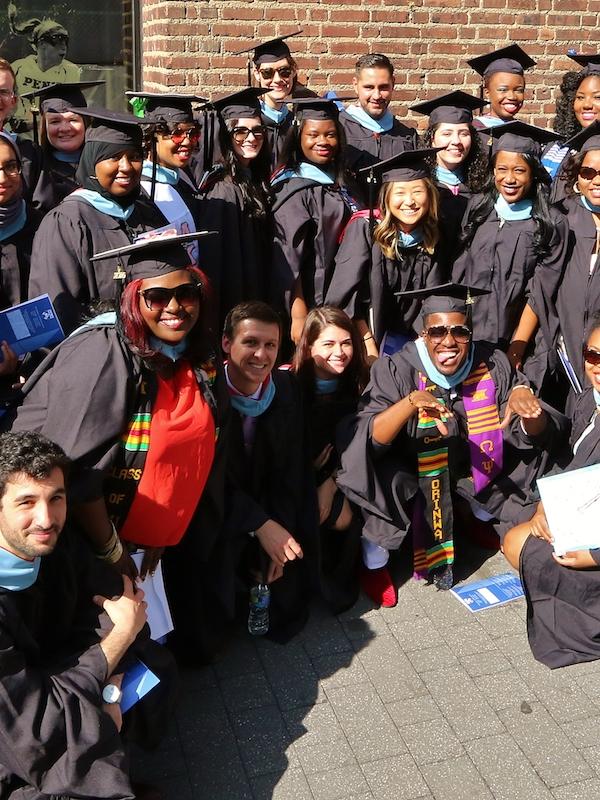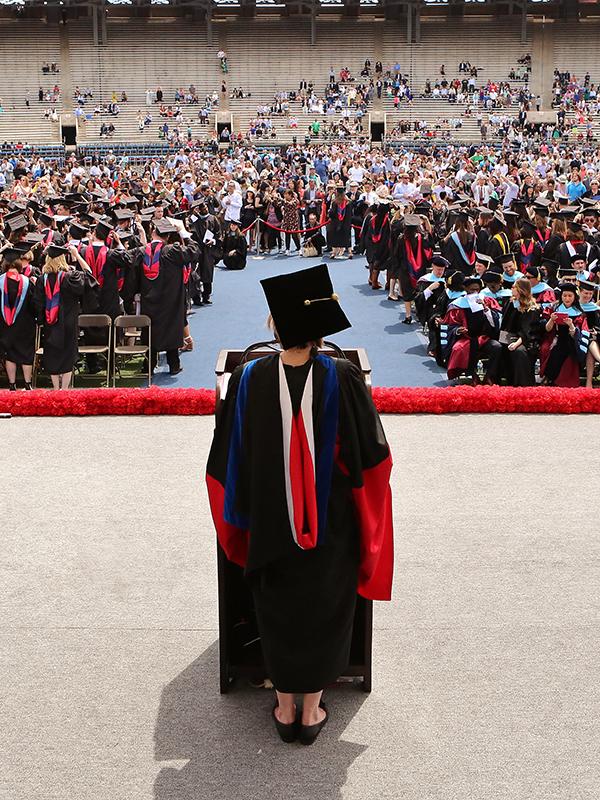Promoting Intercultural Understanding
“Our programs supplement and enrich school curricula and meet the unique needs of student groups. Sometimes, we are the innovator, filling a need when a school simply does not have the time or resources.”
by Susan Counsins Breen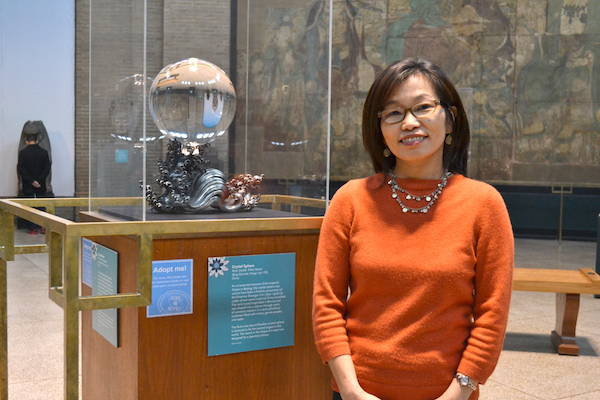
Penn Museum
For Hitomi Yoshida, GED’95, cultural programming offers an unforgettable way to bring the world to students. Twenty-one years ago, she was a student in Penn GSE’s Intercultural Communication program and a volunteer sharing her cultural knowledge at local schools through the Penn Museum’s International Classroom. In January 2015, the Osaka, Japan, native brought her experience full circle when she returned to Penn to lead the International Classroom as the Museum’s diversity programs manager.
“The International Classroom is part of an education platform that provides rich experiences in critical thinking and intercultural dialogue for Philadelphia-area K–12 students,” says Yoshida. “Participants learn about other countries and cultures and directly interact with people from around the world.”
Founded in 1887, the Penn Museum has always been one of the world’s great archaeology and anthropology research museums, and it is the largest university museum in the United States. Yoshida’s International Classroom speakers—many of them GSE students and alumni—bring world cultures to life for students, sharing the rituals, traditions, stories, and performing arts of their nations.
“The GSE student and alumni community has a diverse international mix,” says Yoshida. “Many of our speakers are from other countries—such as Greece, Chile, and China—and they all share a passion for education.”
Programs are offered in the Museum, in classrooms and community centers, and in virtual workshops in which lessons are beamed into classrooms in real-time. They include presentations by Penn doctoral students in archaeology and anthropology who share their experiences in the field. “Chilean Heroes: Story of Youth Leadership for School Reform,” “Gifts for the Greek Gods: Clay Workshop,” and “Kanga: Message Carriers in East Africa” are just a few of the program topics.
Yoshida finds it rewarding to broaden students’ experiences. “As an informal educator, I have the flexibility to create different ways to teach,” she says. “Our programs supplement and enrich school curricula and meet the unique needs of student groups. Sometimes, we are the innovator, filling a need when a school simply does not have the time or resources.”
Yoshida credits Penn GSE with building her theoretical knowledge and research skills, as well as helping to prepare her for her current role. “GSE provided an opportunity to apply my skills in real multicultural contexts on the Penn campus and in Philadelphia, and to bring intercultural observations and experiences back to the classroom for further examination,” she says.
She is grateful for the contributions of the GSE community to her work. “I am proud to tap into the talent and generosity of GSE students and alumni,” she says. “It’s exciting to create global learning opportunities together that may not otherwise be offered in schools.”
This article originally appeared in the Fall 2016 issue of The Penn GSE Magazine.

